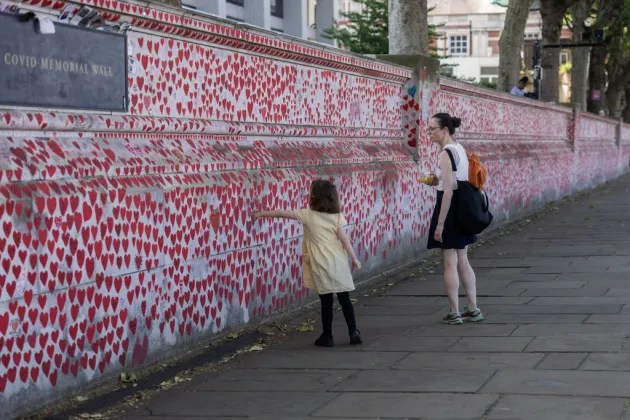Explainer: Why we needed a Covid-19 inquiry

The first evidence session of the Covid-19 inquiry in the UK begins today. The inquiry is colossal, both in terms of what it’s expected to cover and in terms of the amount of money that’s been spent to put it in place. It will last at least until 2026.
You might think no one wants to hear a damn thing about the pandemic any longer. But this isn’t true for the bereaved families – who were holding a vigil earlier today, claiming the inquiry has “excluded” them as they won’t be able to provide live evidence. They can, however, share their stories by filling out an online form. This is mainly for numerical reasons: more than 220,000 people died of Covid-19 in the UK, so it would be impossible to hear from all of their loved ones in this context.
It also shouldn’t be true for the government, since experts have been saying that another pandemic is unavoidable – and it could come in the next ten years. Given the high number of deaths in the UK, it’s important to look at what went wrong in the decision-making and the deployment of the infrastructure. The inquiry is also key to acknowledging how the pandemic affected different socio-economic groups in different ways, with minorities and low-income families hit the hardest.
The inquiry could cost more than £100m. Lawyers and experts have been employed to work on it, and swathes of people will be called to provide witness statements – including our politicians. The inquiry could prove particularly sensitive for Rishi Sunak, who at the time of the pandemic was the Chancellor of the Exchequer and could leave his sessions politically scarred if the inquiry finds the government guilty of badly handling that period.
The inquiry has already – perhaps inevitably – acquired a political flavour. Before all the Boris-Johnson-leaves-politics chaos of last week, there was additional drama unfolding between Johnson, the government and the chair of the inquiry, former Court of Appeal judge Lady Hallett. The government is not too keen on the prospect of Hallett reviewing thousands of WhatsApp messages and unredacted diaries of the time when Johnson and Sunak were in government together. Hallett says she should be the one deciding whether this evidence is relevant or not, after having reviewed it.
The inquiry will be split into six different “modules”, sections looking at different aspects of the pandemic, from government’s decision-making to vaccines. The first one, starting today, is about how prepared – or unprepared – our country was for the pandemic.
The public hearing today started with some initial remarks from Lady Hallett followed by a 17-minute film including moving testimonies from bereaved families. The chief counsel, Hugo Keith, then introduced the topic of preparedness and talked about how Covid mortality was two-and-half-times higher in the most deprived parts of the UK. It was followed by opening statements from “core participants” and then from the witnesses.
The inquiry will be a complex business, and many have argued that it’s too little too late. Yet it is also an important collective exercise – to look at the past and learn for the future.